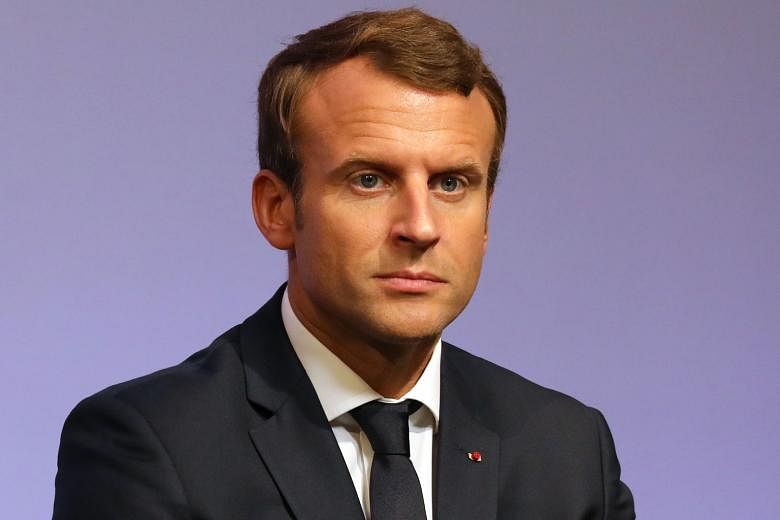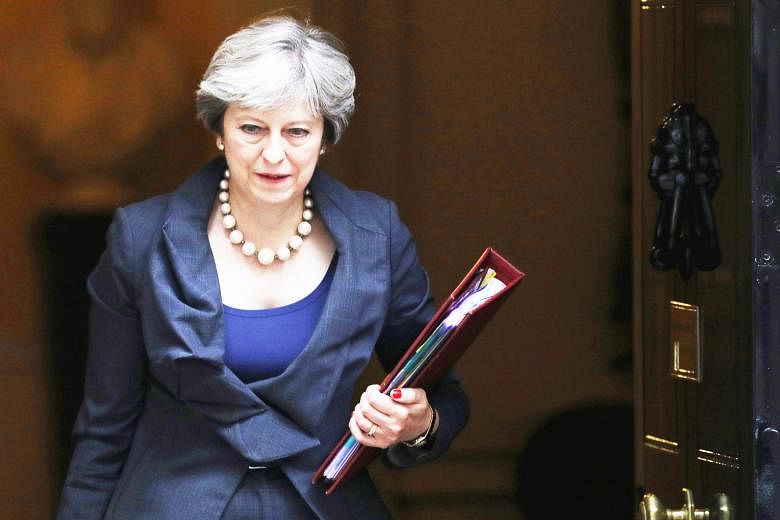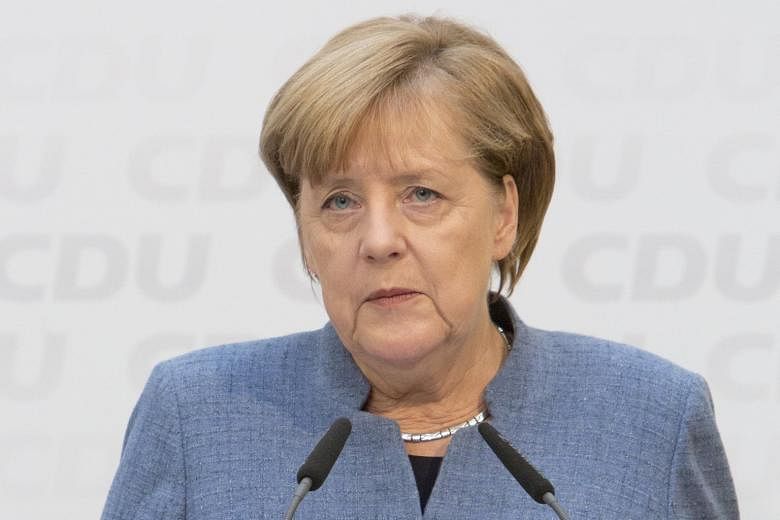LONDON • Iran, Russia and European leaders have roundly condemned President Donald Trump's decision to disavow the Iran nuclear deal, saying it reflected the growing isolation of the United States, threatened to destabilise the Middle East and could make it harder to resolve the growing tensions on the Korean peninsula.
Mr Trump defended his decision to "decertify" Iran's compliance with the 2015 agreement in a speech on Friday that evoked US grievances dating back to the 1979 Islamic Revolution.
And he warned he could rip up the 2015 agreement curbing Iran's nuclear programme "at any time", saying it had failed to address Iranian subversion in its region and its illegal missile programme.
Mr Trump stopped short of scrapping the deal outright, however, leaving Congress and US allies some room for manoeuvre. The Republican-controlled Congress now has 60 days to decide whether to reimpose sanctions on Iran - a step that if taken would almost certainly doom the accord.
Reactions to the US move came fast and furious, with Iranian President Hassan Rouhani declaring that the US was "more than ever against the Iranian people".
He denounced Mr Trump and called the US an outlier that had become "more lonely than ever" in the international community.
He did not threaten to withdraw from the deal, but made it clear that he would not renegotiate the terms, either. "He has not studied international law. Can a President annul a multilateral international treaty on his own?" Mr Rouhani asked.
Though they avoided direct criticism of Mr Trump, British Prime Minister Theresa May, German Chancellor Angela Merkel and French President Emmanuel Macron said in a rare joint statement that they "stand committed" to the 2015 nuclear deal and that preserving it was "in our shared national security interest".
"The nuclear deal was the culmination of 13 years of diplomacy and was a major step towards ensuring that Iran's nuclear programme is not diverted for military purposes," they added.
Russia urged US lawmakers to preserve the deal as well. "We want to hope that Congress will not take any dramatic steps which would effectively signify a collapse" of the deal, Russian deputy foreign minister Sergei Ryabkov, told Interfax.
There are fears that the basic framework of the accord could collapse if the US walks away. The spokesman for Russian President Vladimir Putin told reporters on Friday that Russia believed Iran would abandon the deal if the US did.
German Foreign Minister Sigmar Gabriel told Deutschlandfunk radio that Mr Trump had sent a "difficult and dangerous signal" when the US was also dealing with the North Korean nuclear crisis.
"My big concern is that what is happening in Iran or with Iran from the US perspective will not remain an Iranian issue but many others in the world will consider whether they themselves should acquire nuclear weapons too given that such agreements are being destroyed," Mr Gabriel said.
Former US secretary of state John Kerry, who negotiated the nuclear deal, accused Mr Trump of "creating an international crisis" and called on the US Congress to stand in the President's way.
"It endangers America's national security interests and those of our closest allies," Mr Kerry said.
Some leaders declared that the deal was not something that Mr Trump could cancel, contending that he was essentially putting on a show for his political base.
"The President of the United States has many powers - not this one," the European Union's top diplomat, Ms Federica Mogherini, said at a news conference in Brussels.
President Macron later said he was considering visiting Iran after speaking by phone with his Iranian counterpart.
But Mr Trump's aggressive stance on Iran won plaudits from several nations on Friday, specifically from adversaries of Iran like Israel, Saudi Arabia and the United Arab Emirates.
NYTIMES, AGENCE FRANCE-PRESSE, REUTERS



